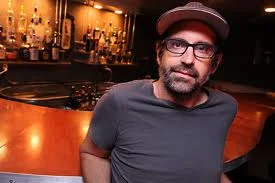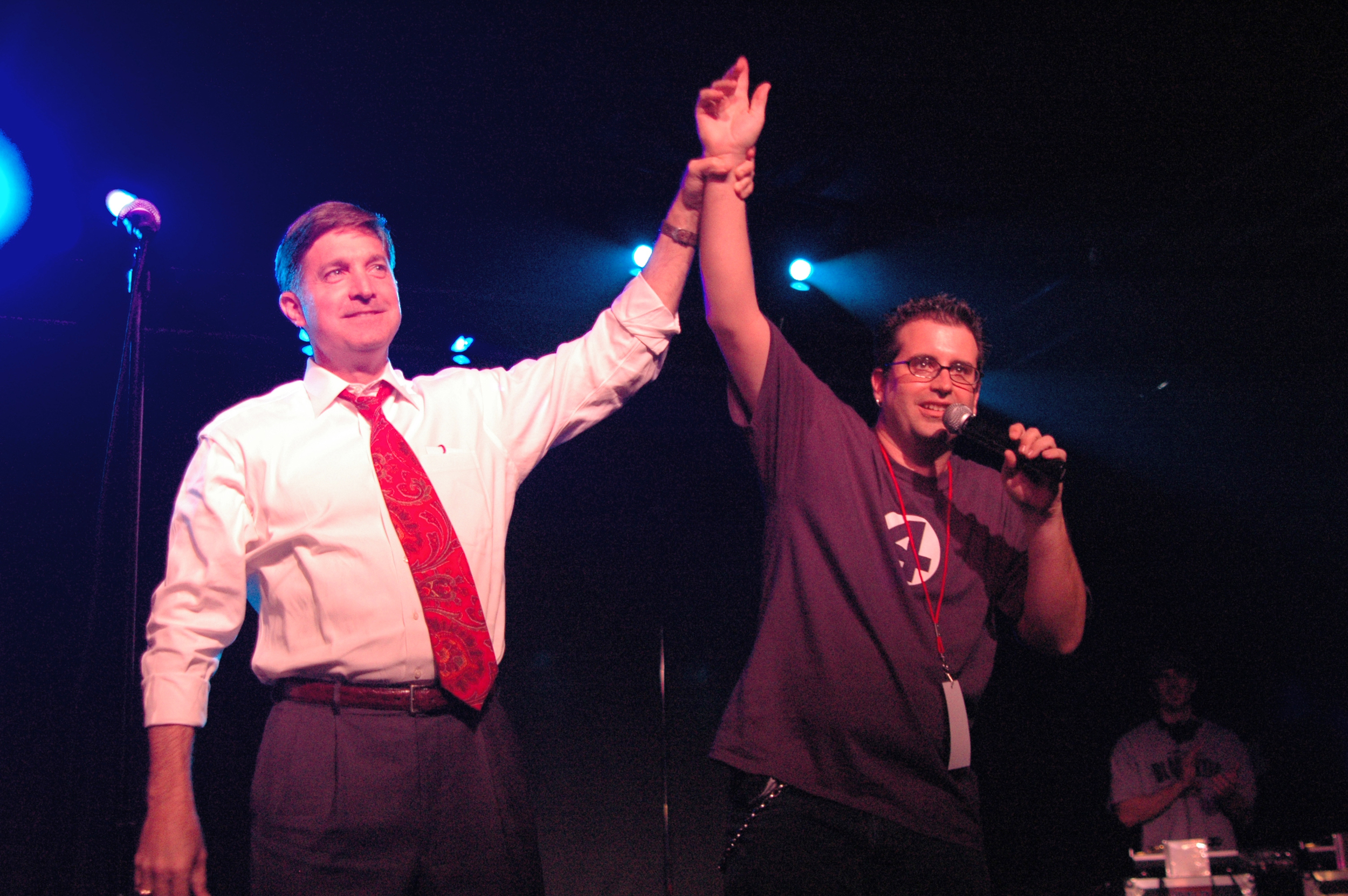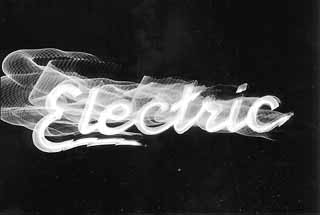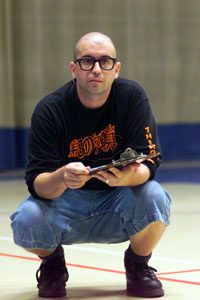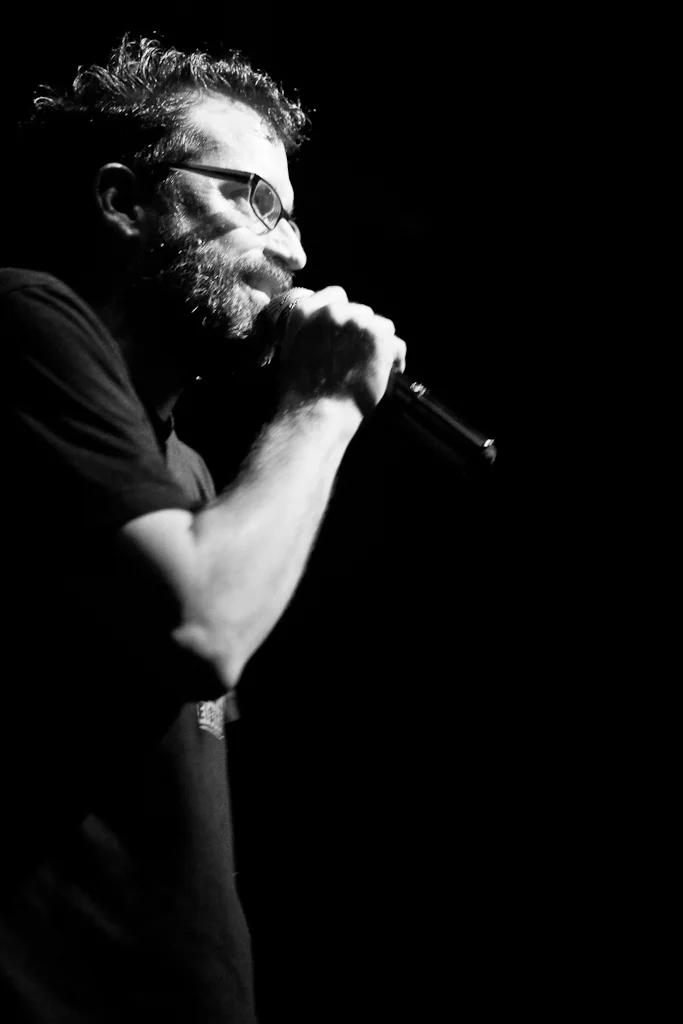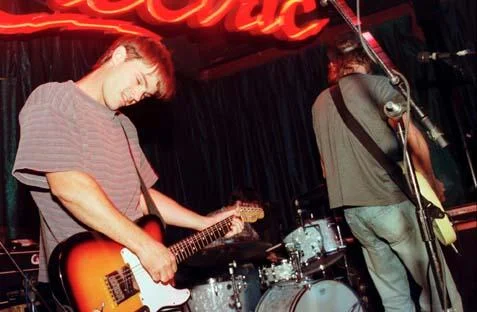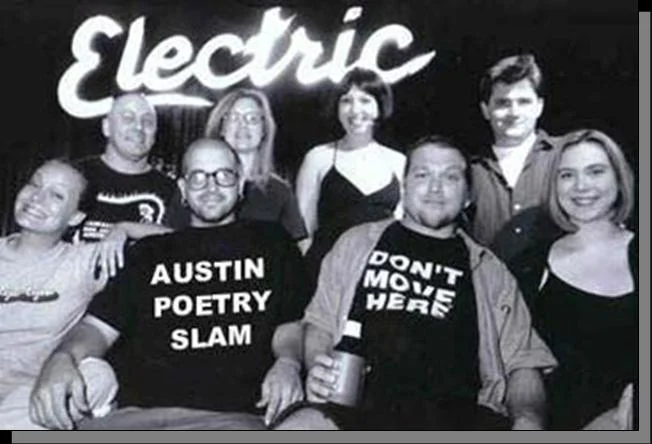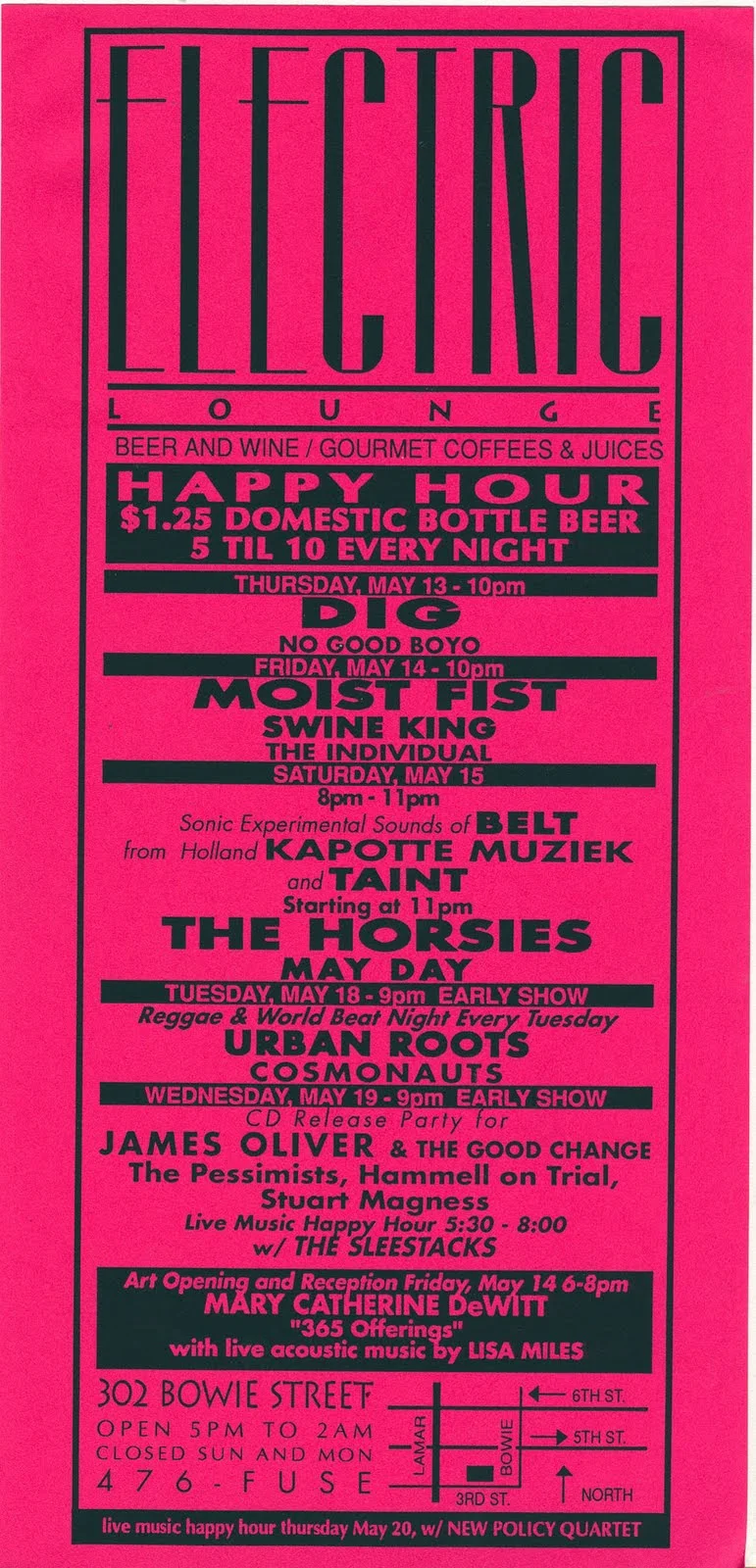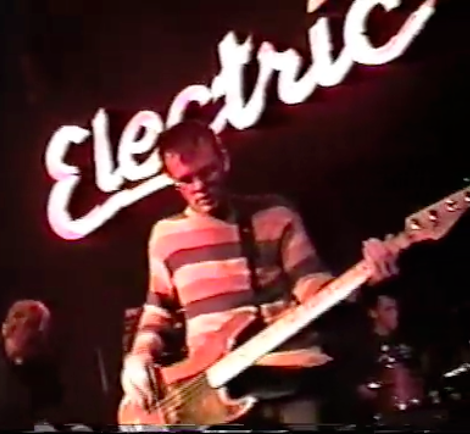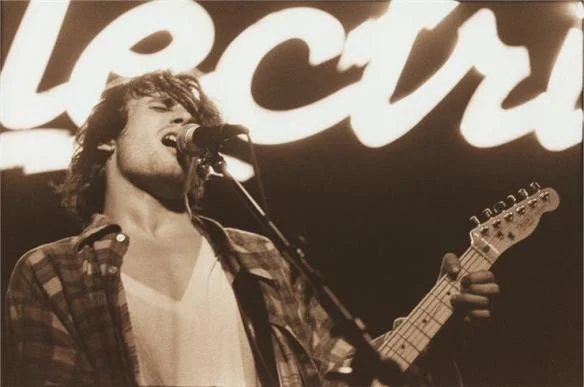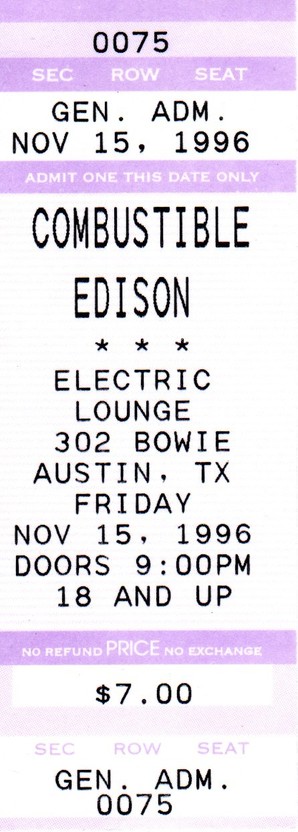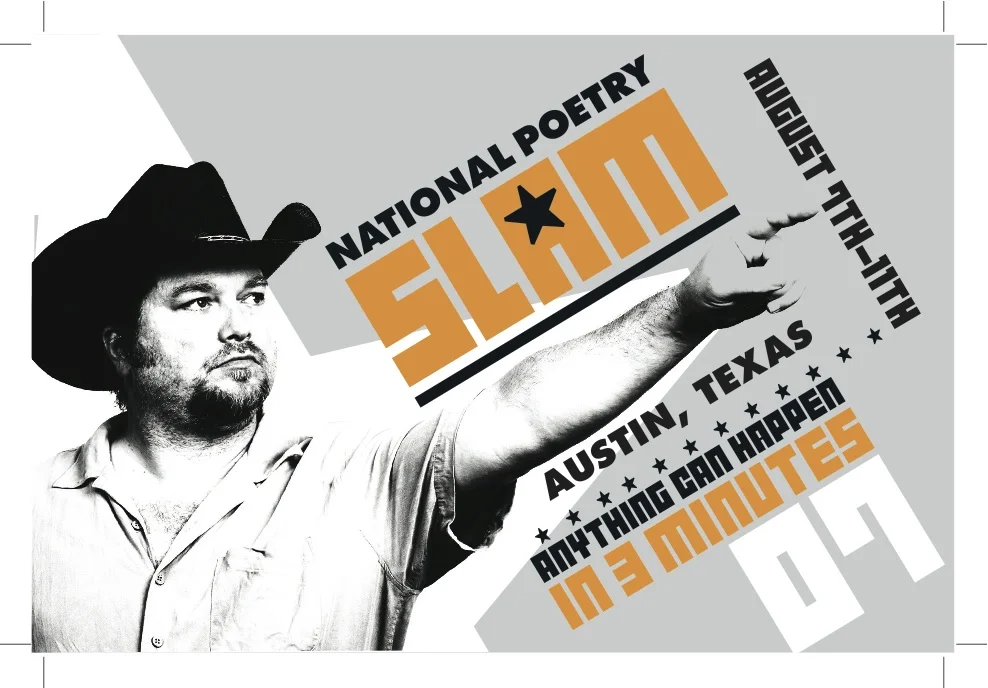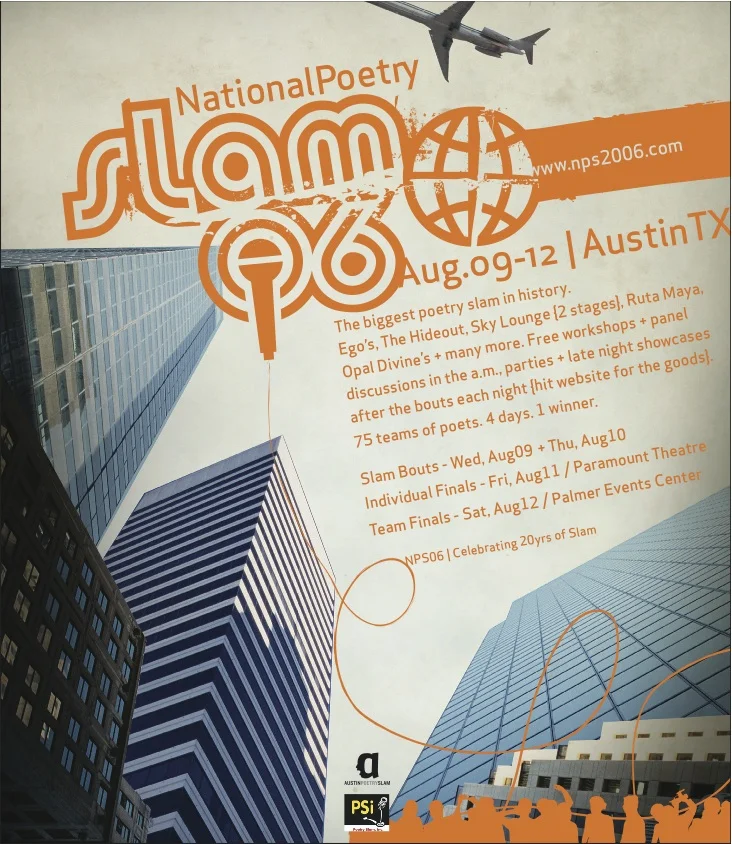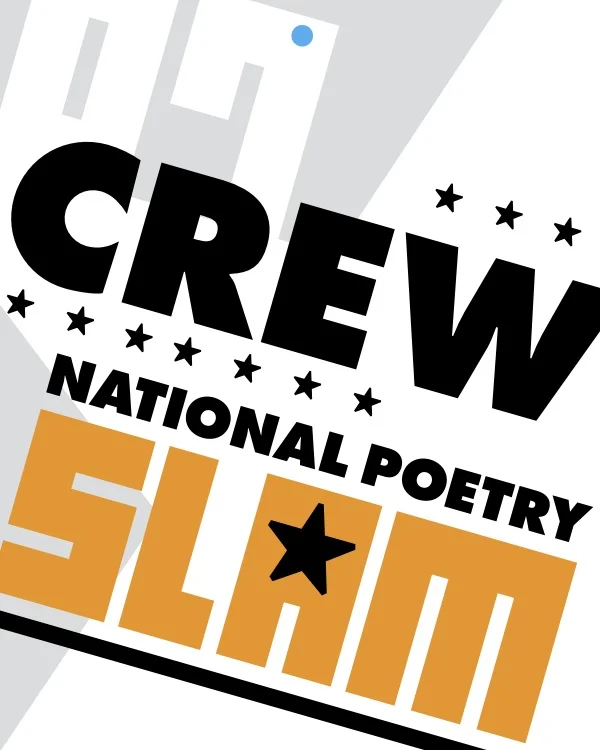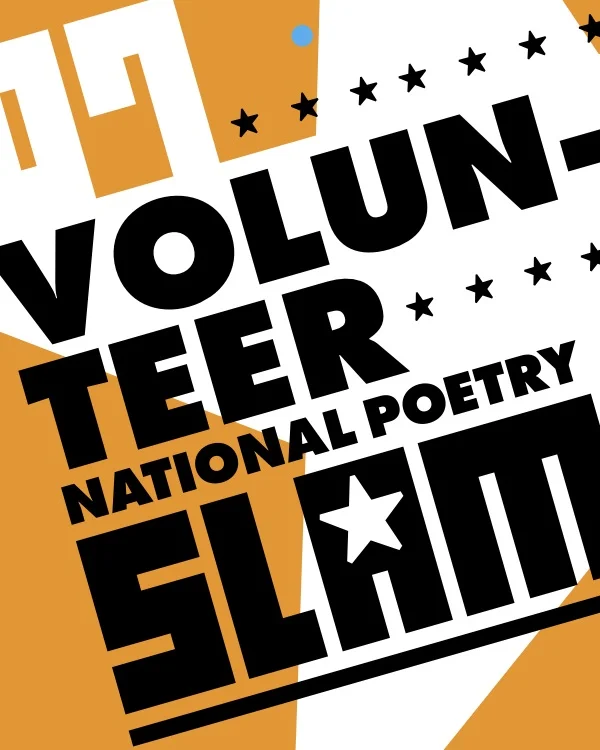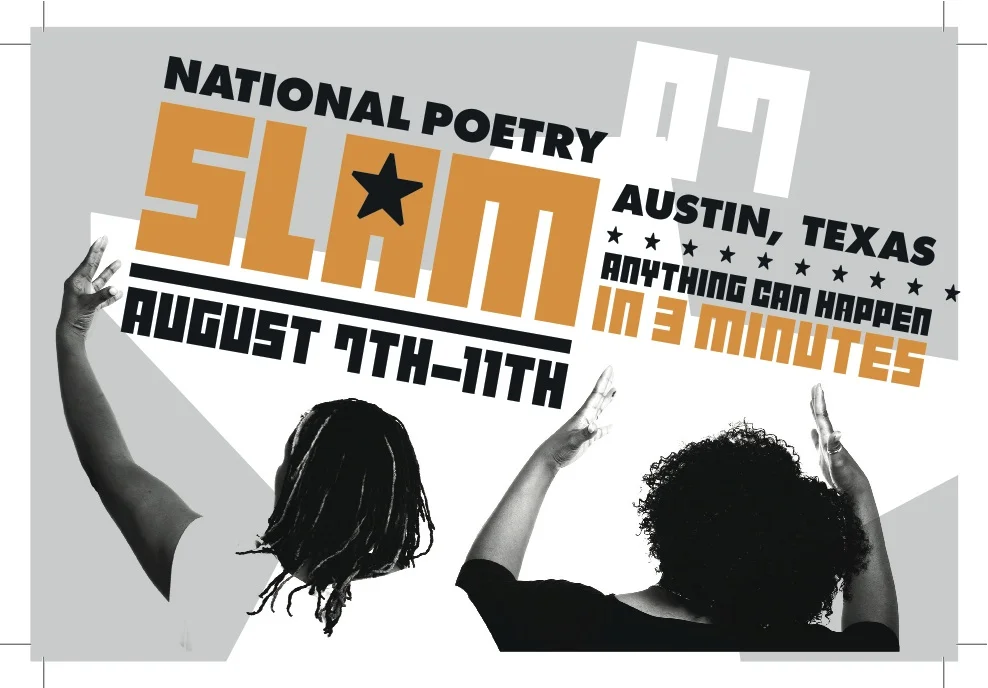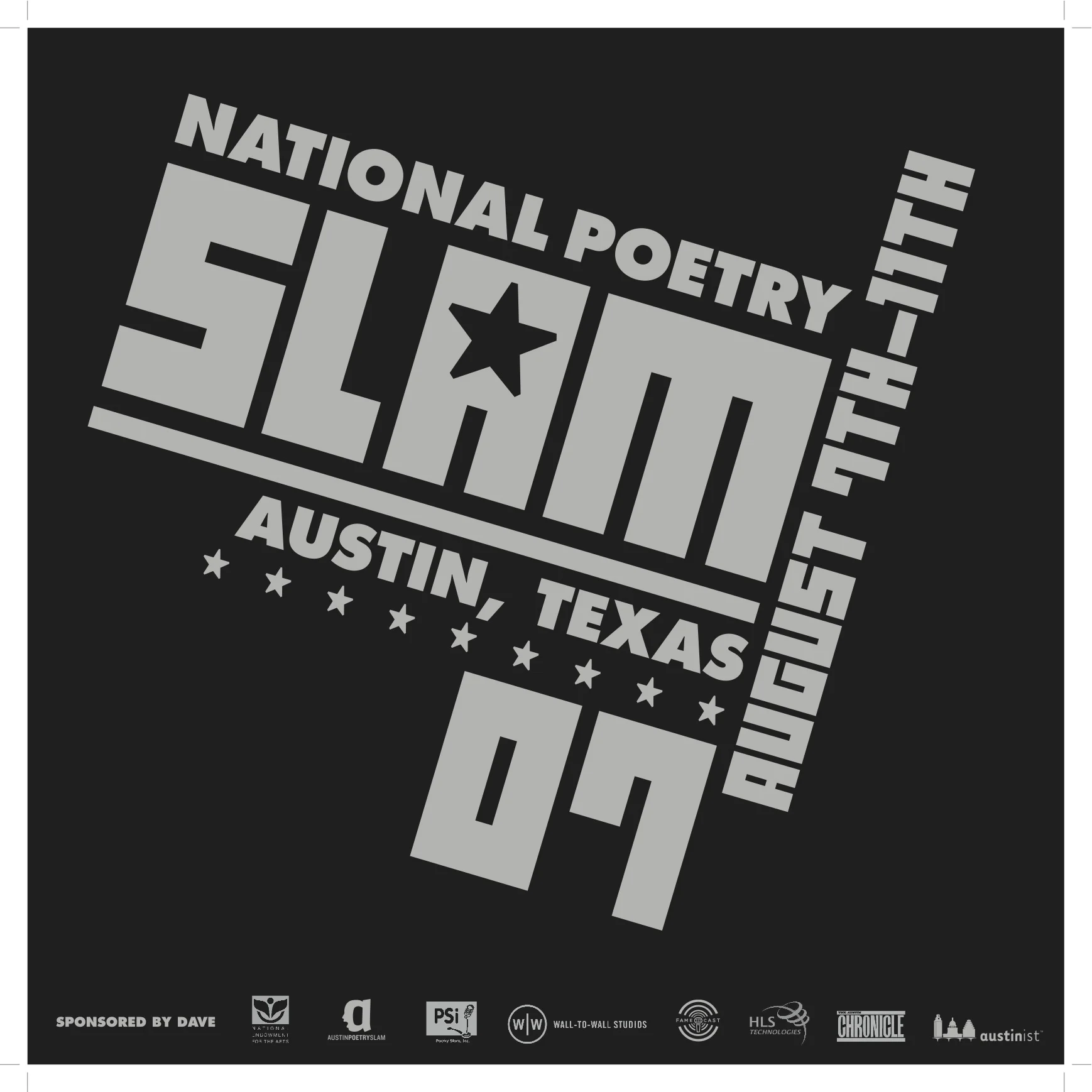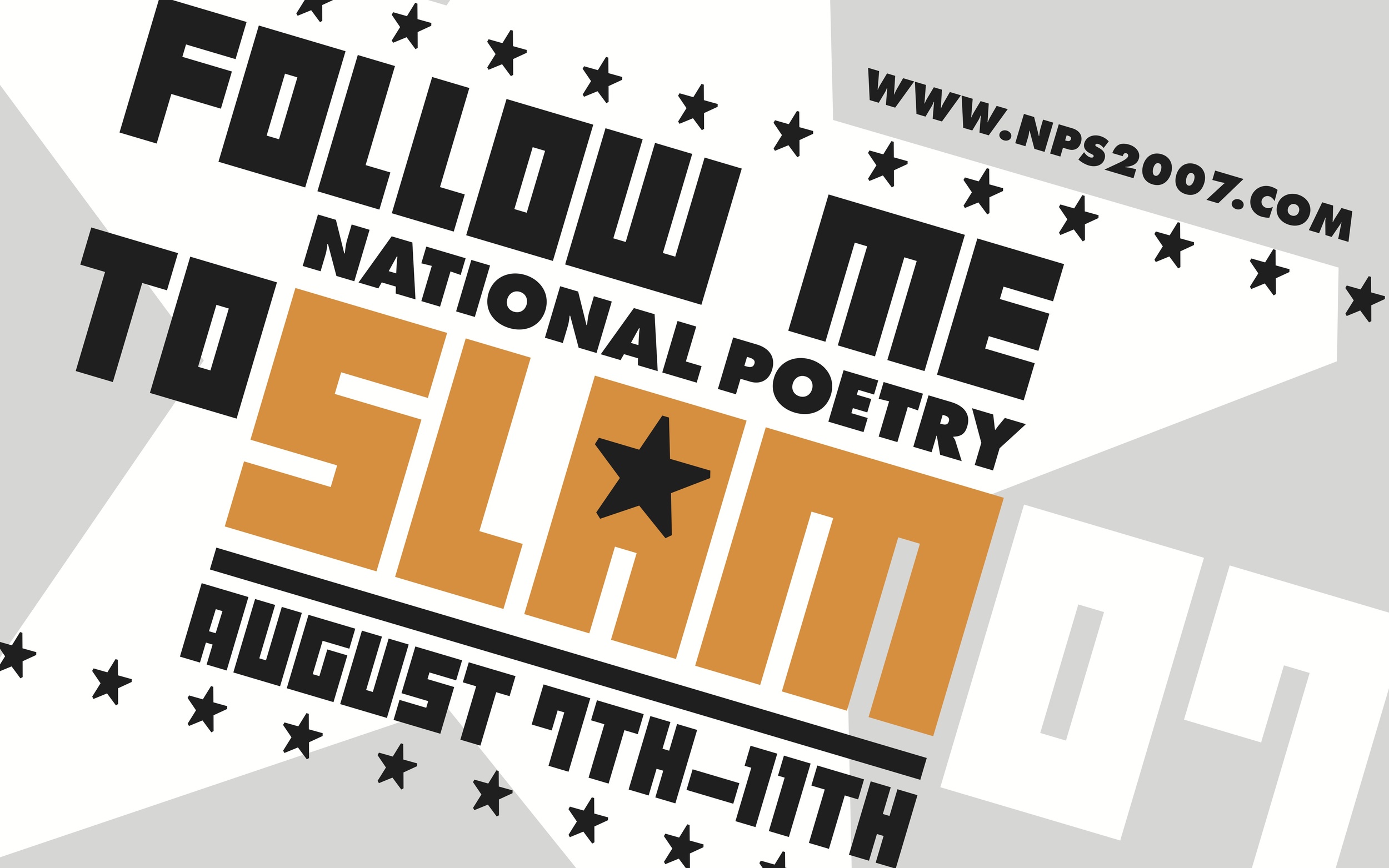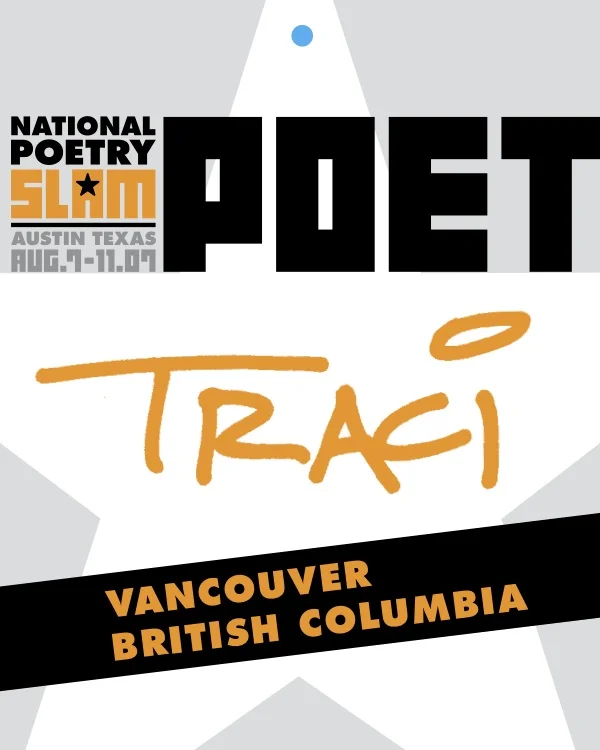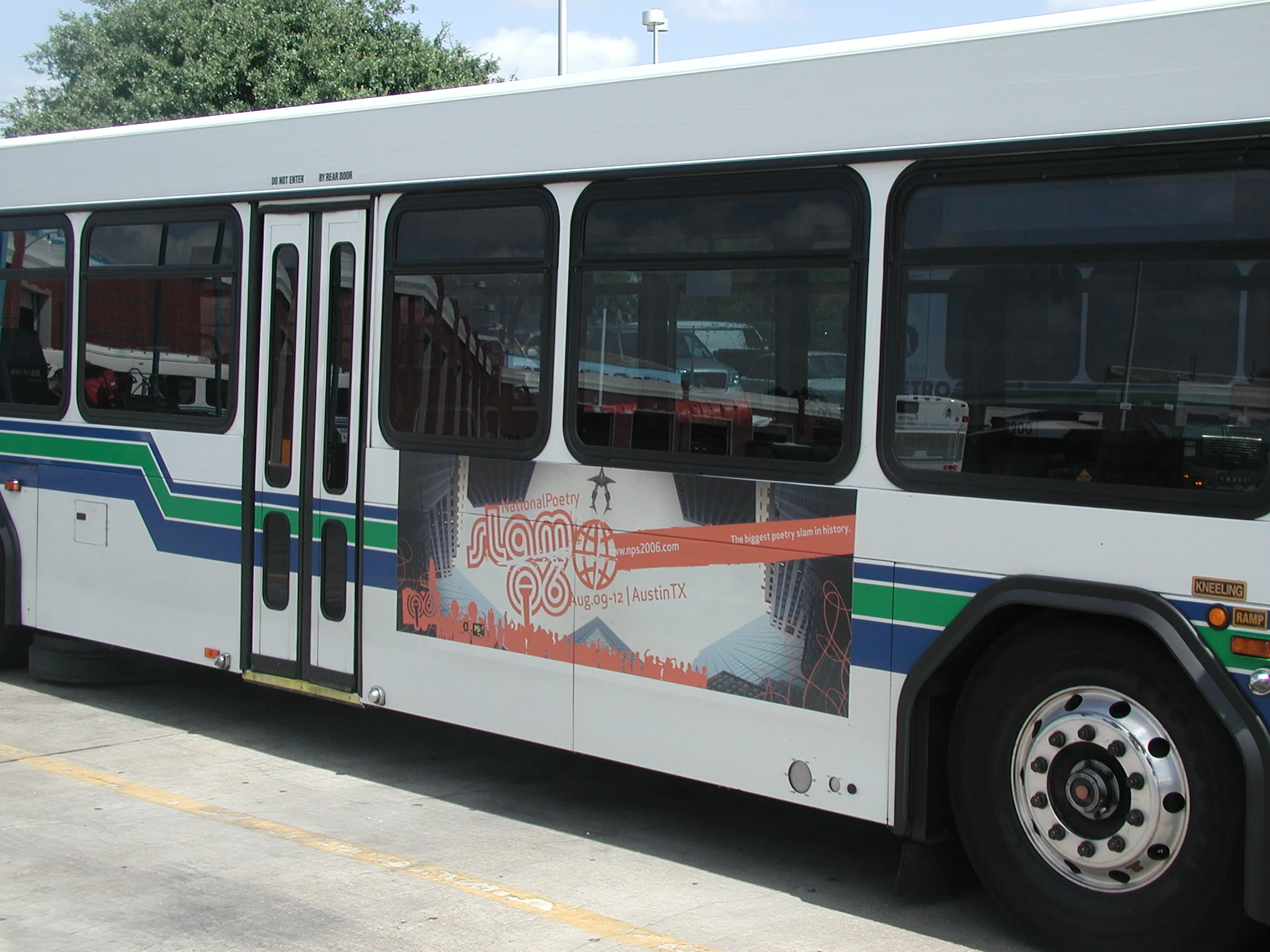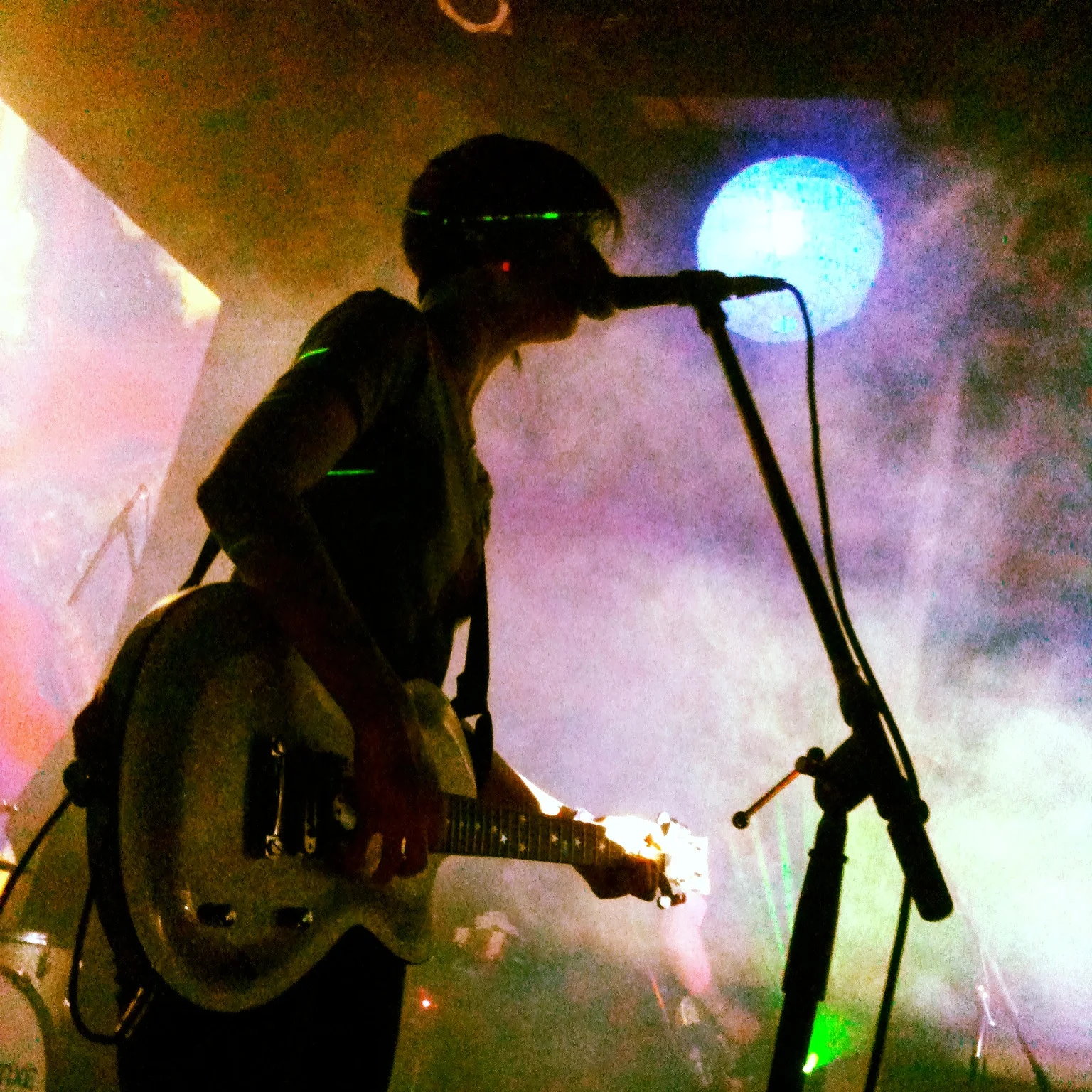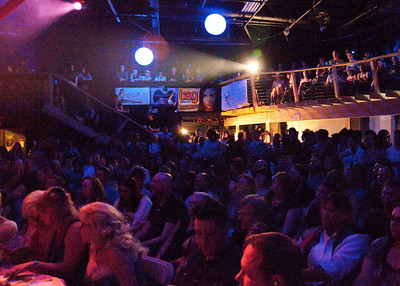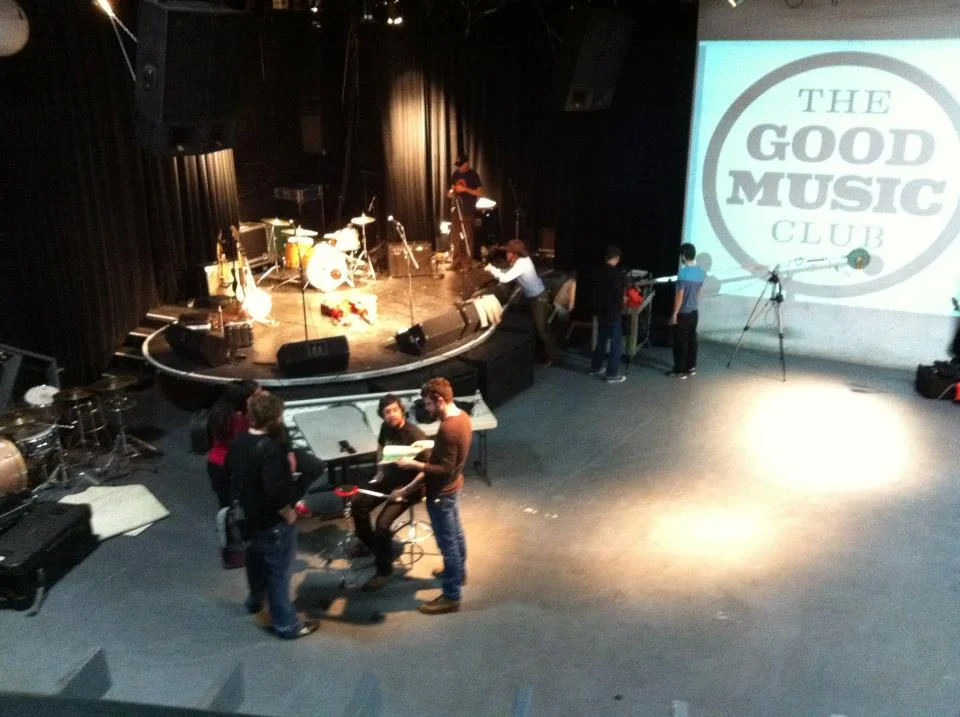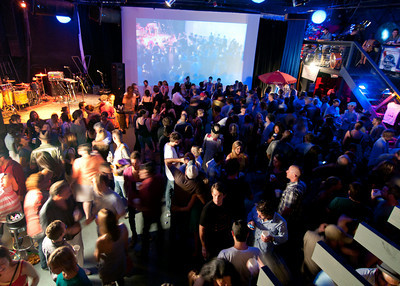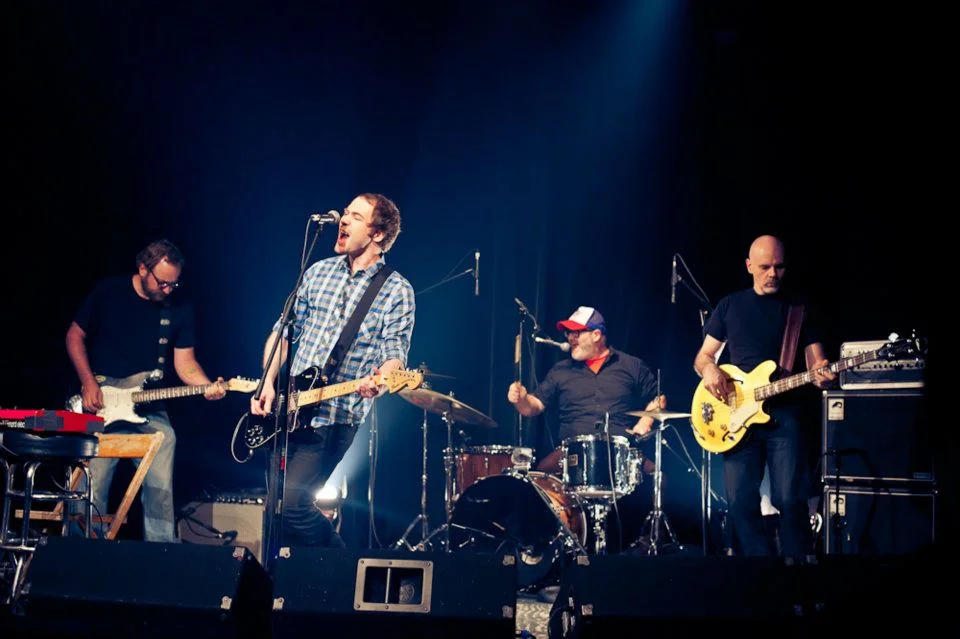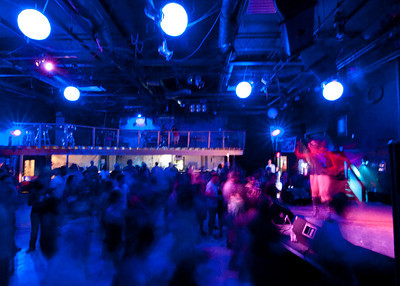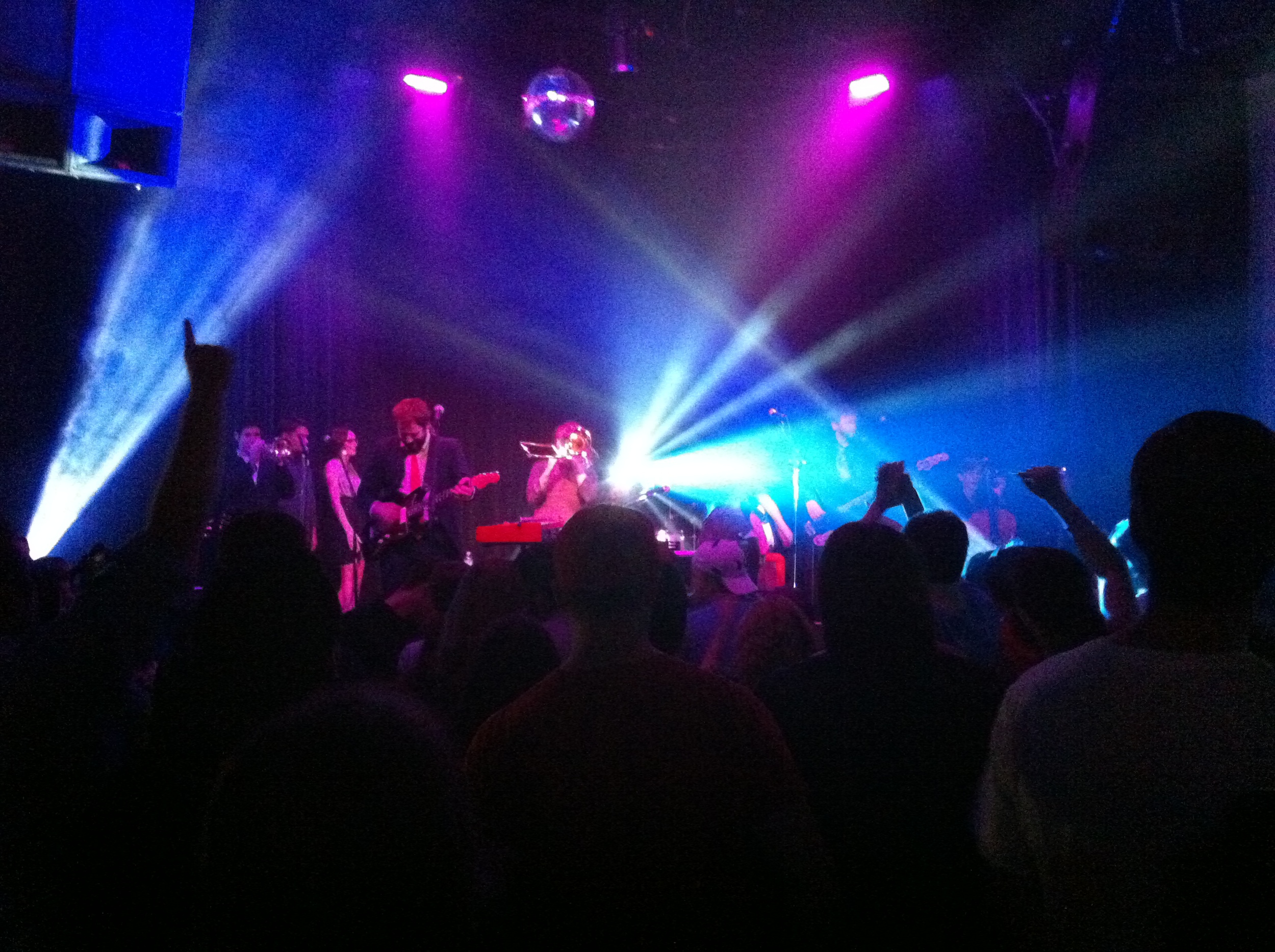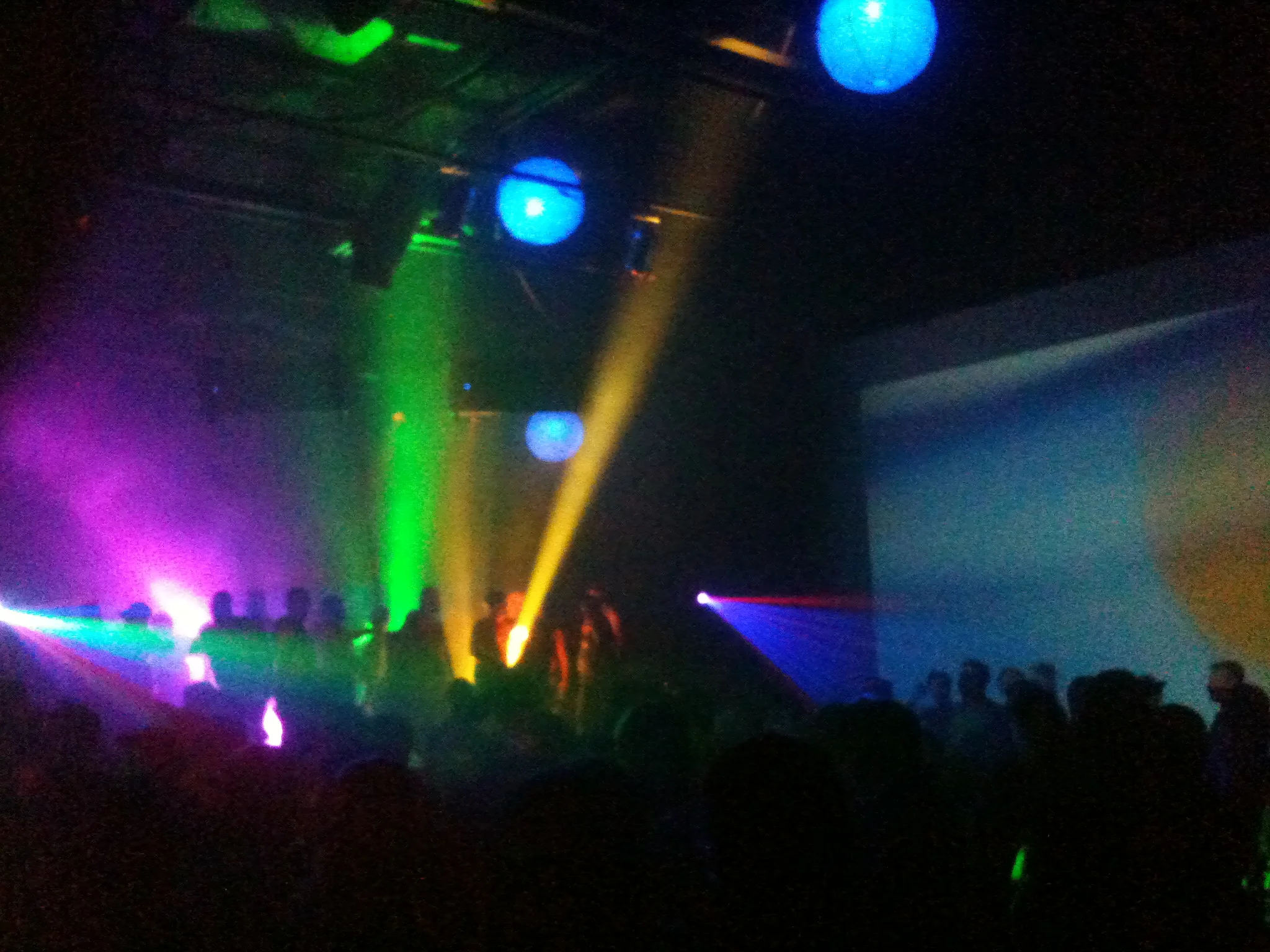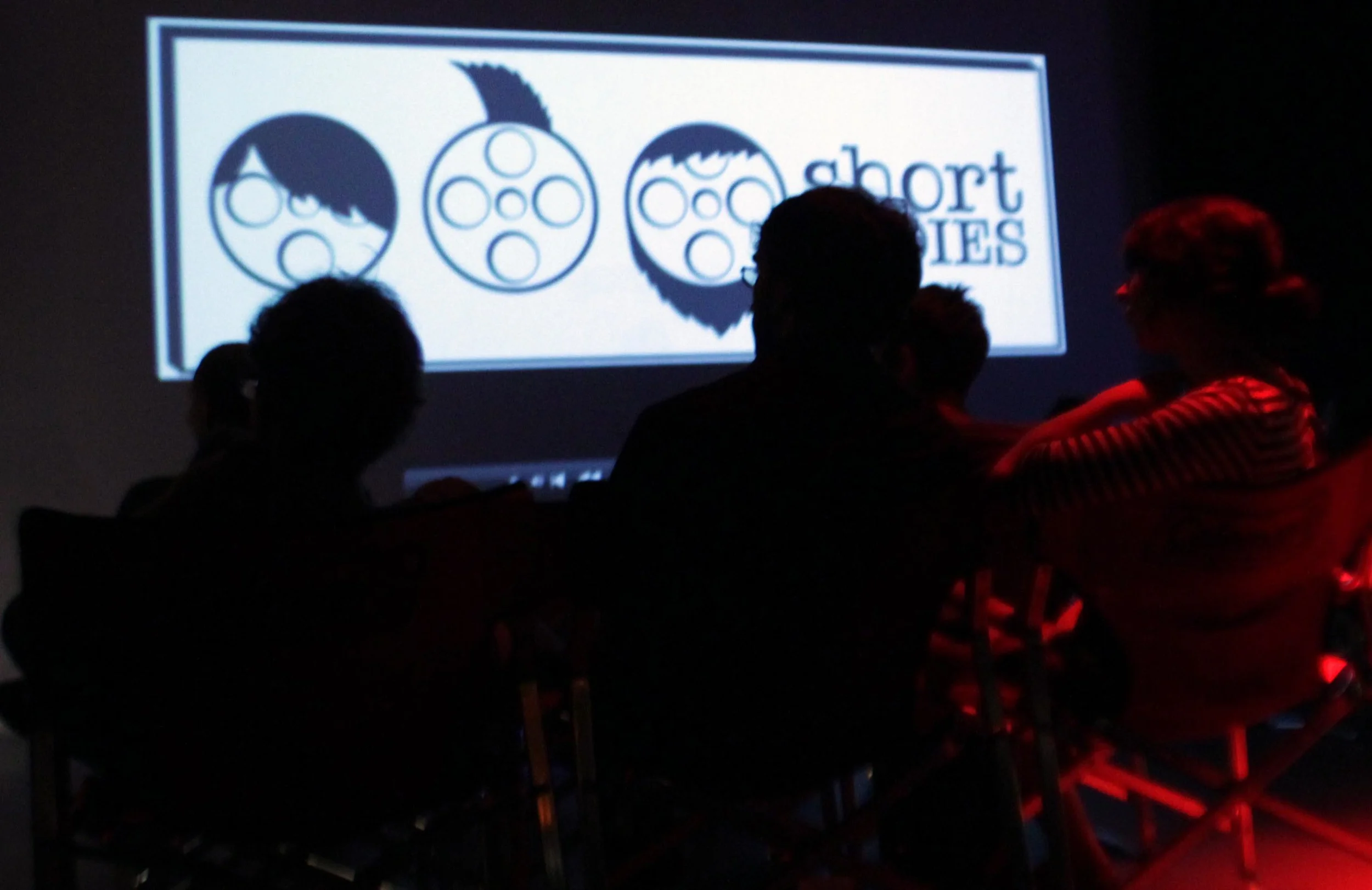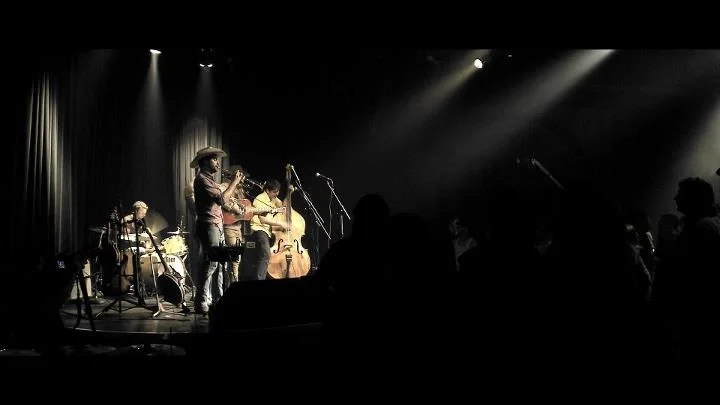On the afternoon that Mike Henry finished his last class at Oklahoma City University during the summer of 1990, he loaded up everything he owned and drove straight to Austin, Texas, where he has spent the last two decades working extensively in the entertainment industry.
MH: “ I remember when I got here there were these plain white stickers with the word SLACKER on them plastered on every telephone pole, I thought, man, that band really knows how to promote. I gotta go see those guys.”
Henry would quickly figure it out. Slacker wasn’t a band. He had moved right into the middle of the unique incubator depicted in Richard Linklater’s reknowned film about Austin culture.
That canopy, which would soon become the self-proclaimed “Live Music Capitol of the World” provided a broad slate of opportunities for Henry to dive in and learn his craft.
Within his first few years in town, Henry had started his own boutique booking agency, focused on music that was trying to decide if it would be called “college rock” or “indie pop.” He booked local shows for acts like Black Irish, Cotton Mather, the Wannabes and a brand new band called Spoon.
In the sweltering summer of 1993, Henry opened that week’s edition of the Austin Chronicle and saw an article about a new venue opening. With an armful of press kits and demo tapes, he walked in to the Electric Lounge, still under construction, and met his future business partners, Jay Hughey and Mark Shuman, still building the bar.
Soon after the venue opened, Henry made the short journey from the side of the bar where the customers sit to become a bartender. A few months later, the club’s General Manager went home for Christmas and didn’t come back. Field promotion. After taking over operations, Henry convinced the venue owners to let him start booking the room.
Tickets for sold out Electric Lounge shows.
The Lounge became Henry’s first chance to create, curate, and cultivate a full calendar of shows and the culture that surrounds them. The room became home base for Austin indie rock and touring acts from Jeff Buckley to The Melvins, Lucinda Williams to Spiritualized. Henry became part owner of the venue and served as its operating partner, GM, and Jedi Master for many years.
MH: “Running a venue in the 90’s was truly a DIY world. We had never even heard of the internet. I would get up, get breakfast tacos, and spend the day on the phone talking to bands. Then, take the profit from last night’s show, order the beer, stock the beer, sell the beer, drink the beer, mop up at the end, get up and do it again.”
As the years went by, Henry expanded the programming reach to include a focus on independent hip hop, which was a desperately underserved community of artists and audience in Austin at the time. Working with seminal promo crew Hip Hop Mecca, the Lounge enjoyed packed shows by Heiroglyphics, Aceyalone, Mix Master Mike, Project Blow’d, DJ Spooky and more. Additionally, he reached into the local performing arts community and gave early homes to emerging theater companies like Rude Mechanicals and Salvage Vanguard Theatre, and helped establish a first home base for Austin Poetry Slam.
After surviving a fire that destroyed the interior of the club (inspiring SXSW showcases held in a circus tent in the parking lot), and struggling against many of the challenges that new businesses joust with to make ends meet, the economic climate of Austin’s downtown district started to change. The venue had been built into what was a largely under-developed, deserted area of downtown. As the city placed a new, forward-thinking emphasis on smart growth and rebuilding the urban core in the area, the elevated overhead expenses that came along with the improving neighborhood, coupled with an impending period of construction dominating the area spelled the writing on the wall for the Lounge. The team made the difficult decision to take the business down on its own terms. There was an extremely monumental party that lasted two weeks and the Lounge went out in a blaze of hungover glory.
After the club closed, Henry got a call from one of the Lounge’s most popular staple acts, The Asylum Street Spankers, whose weekly residency had become one of Austin’s most popular events (and Henry’s favorite bartending shift). The band had lost their drummer. Like many people, Henry had originally found his way into the music business as a performer and had played drums since the age of 14. A couple of quick rehearsals and he was off on what would become two years of touring.
Spankers' show poster from European tour.
MH: “In his book, Get in the Van, Henry Rollins talks about how joining Black Flag was like stepping into a video game, or dropping a quarter into some sort of magic jukebox. It was like that. My third show with the Spankers was New Year’s Eve as 1999 rolled into 2000, playing in the middle of Bourbon Street. If you look at photos of those first shows, I must look like the Cheshire Cat from Alice in Wonderland.”
During his run with Spankers, Henry also moved much deeper into the world of poetry slam. When he was off the road, he led the local community and ran the weekly show. While he was traveling, he and his laptop spent hours of down time focused on the world of arts administration, grant writing, promotion, and production. He became immersed in the culture of the national poetry slam community, served on the Board of Directors for Poetry Slam, Inc., and was the first person elected President when founding father Marc Smith took a leave of absence in 1999.
Henry’s involvement with the Austin music community as a whole continued to expand as well, including seasonal work for South by Southwest as Stage Manager for the festival’s biggest stage, which attracted thousands of audience members. He also freelanced on the festival’s listening committee, evaluating submissions.
MH: “You’d get a box of 100 submissions at a time. A tape or CD, a photo, some press clippings. There was a score sheet with categories to grade them on. I learned a lot about how competitive the industry is doing those listenings. If the music and the story didn’t grab you fast, game over.”
Henry parted ways with the Spankers after two years of touring to work extensively in the local arts community and served as Development Director for Rude Mechanicals Theatre Collective. He continued to sharpen his focus on slam, endeavoring to help the art form he loved grow out of the coffee shop and onto bigger stages.
In 2003, Henry and business partner Kyle Fuller launched slamchannel.com, a content-based web portal based on slam. The company’s first investor was legendary film and television icon Norman Lear.
MH: “Everyone learns lessons doing their first startup, but I still believe the truth was that slamchannel was just a few years ahead of its time. The technology just wasn’t accessible yet to deliver digital downloads and monetize the site. It’s crazy to think about that now, when downloads are so readily available.”
Slam Planet crew interviews Slam founding father Marc Smith.
During that same time frame, documentary film had risen to the forefront as a genre, largely due to the broad success of reality TV. Recognizing this trend and excited for the opportunity to tell slam’s story on the big screen, Henry and Fuller partnered with GSD&M founder Tim McClure and started production on a feature length documentary in the spring of 2004.
Slam Planet: War of the Words focused on teams representing two slam communities; Austin, TX and NYC’s Bowery Poetry Club. Henry spent most of the summer and fall shooting in New York City. Mid-way through production – and hauntingly reminiscent of the Electric Lounge -- the film suffered a near-fatal setback as the building housing its edit suite was destroyed in a fire.
KXAN TV coverage of Slam Planet fire
After a fearless rally of support from the slam community, investors / partners, and the filmmaking team, Slam Planet received an Audience Award for its premiere at South by Southwest 2006. The film went on to screen at ten more festivals throughout the US, Canada, and Europe.
Austin Mayor Will Wynn and Mike Henry announce the upcoming 2006 National Poetry Slam, onstage at La Zona Rosa.
In 2006 and 2007, Austin Poetry Slam did something that had never been attempted in slam’s modern age and hosted the National Poetry Slam tournament in back to back years. It was a mammoth undertaking, requiring Henry and the rest of the team to flex multiple muscles and expand existing paradigms to create both the playing field and playground for 80 teams of poets and their accompanying entourage and audience.
MH: “Our primary goal was to facilitate opportunities for the participants to interact outside of the competition and have fun -- enormous amounts of free food, great parties, and a full slate of daytime workshops, open readings, and showcases. We also emphasized branding and a sense of style to communicate that slam is a vital and valuable art form and deserves as much spectacle as any music festival.”
“There’s nothing like the National Poetry Slam. A week of highly energized, explosive people with a lot to say descend on a city. At the end of it, you’re standing on a massive stage like the Paramount Theater looking at a sold-out audience who are going bananas for artists they’ve never heard of. It’s not like there’s some big name to draw them. It is proof of the power of community, interaction, and great writing.”
One of the spaces that served as a venue and a party spot (featuring at one point a now-legendary NPS-shaped ice sculpture / vodka slide) was an old sound stage on Austin’s emerging east side, owned by Henry’s friend and Slam Planet co-producer Richard Kooris. In April of 2008, Kooris and Henry sat down and envisioned a new future for the space, repurposing it as a live performance venue with full bar service.
Henry produced his first show in the space on May 16, 2008. The show featured a one-woman-show by Krissi Reeves, who would become Henry’s closest adviser, partner, and collaborator. That night kicked off a long road of transformation of the facility into a working venue.
This development period would stretch out over three years. As physical plant construction progressed – spearheaded by Henry’s Electric Lounge cohort Jay Hughey, events, parties and other underground soirees happened amongst the sawdust and duct tape. The buildout process would encounter multiple challenges in permitting. It was a little like dipping one’s toe into the water in preparation for a swim across the Nile River at the height of piranha season with a live cow tied to each ankle. That is to say, it is exceedingly difficult, fraught with danger, and takes a good bit longer than one would like.
During daytime hours, the team would work tirelessly to push the fledgling venue forward, build a brand, and conquer encyclopedic to-do lists. At night, they would produce events and shake hands with the Austin music community and marketplace. Henry’s focus winnowed down and became specific to ND’s development, including his well-deserved retirement as Austin’s Slammaster in December of 2010.
On July 29, 2011, ND received its final permits and stepped out on her own two feet, 1,190 days after that first show. Grand re-opening ceremonies were held, shots of Jameson with a Frito Pie back were consumed. They were surprisingly good.
Over the next two years, ND’s march continued, carving out its space in the entertainment scene. The ownership and operating teams expanded as new management was put in place to drive the next era of growth for the venue, using its long history and reputation for unique, high quality programming as a launchpad.
In October of 2013, after 23 years in Austin, Henry packed his bags and drove to the desert to join the team at Downtown Project in Las Vegas, Nevada . It is a rare opportunity to accelerate an emerging music scene and contribute to the story of another great American city. He serves as Lead Talent Buyer and Director of Music Operations at Downtown Project, spearheading an ever-changing parade of live entertainment opportunities.
He lives on the web at www.mikehenryhq.com.
